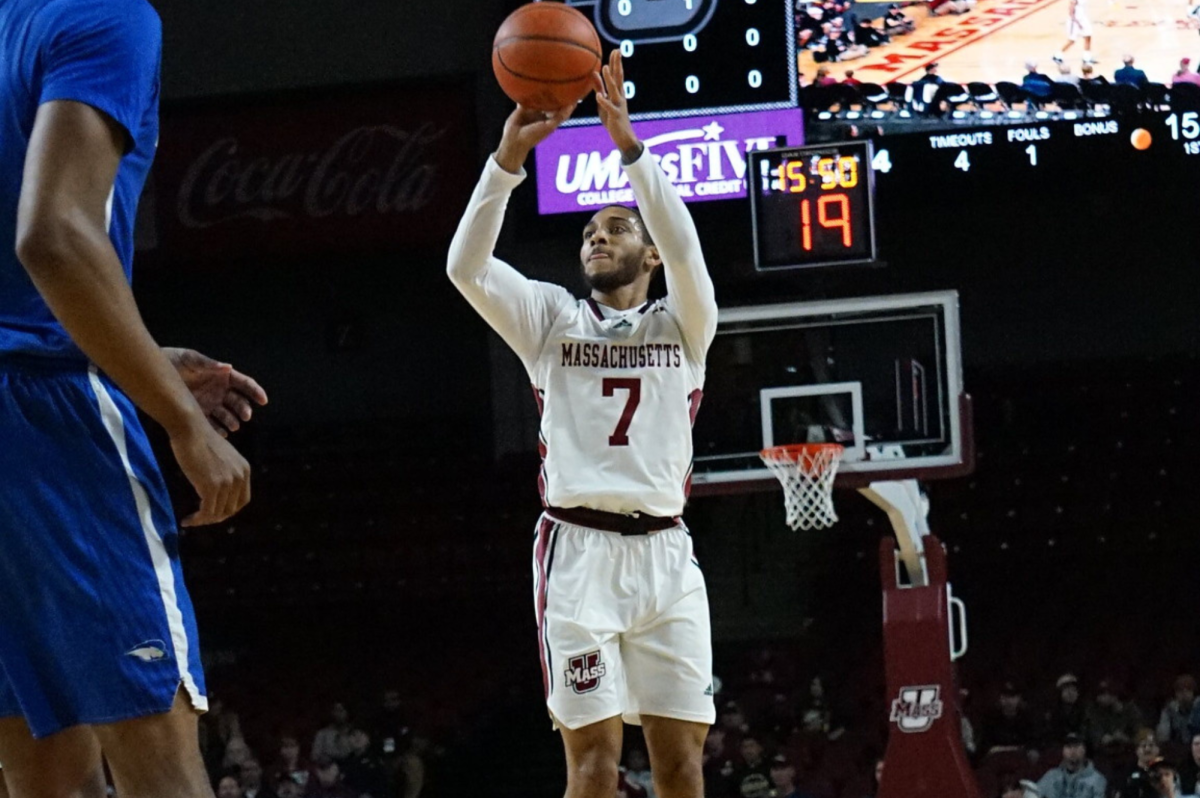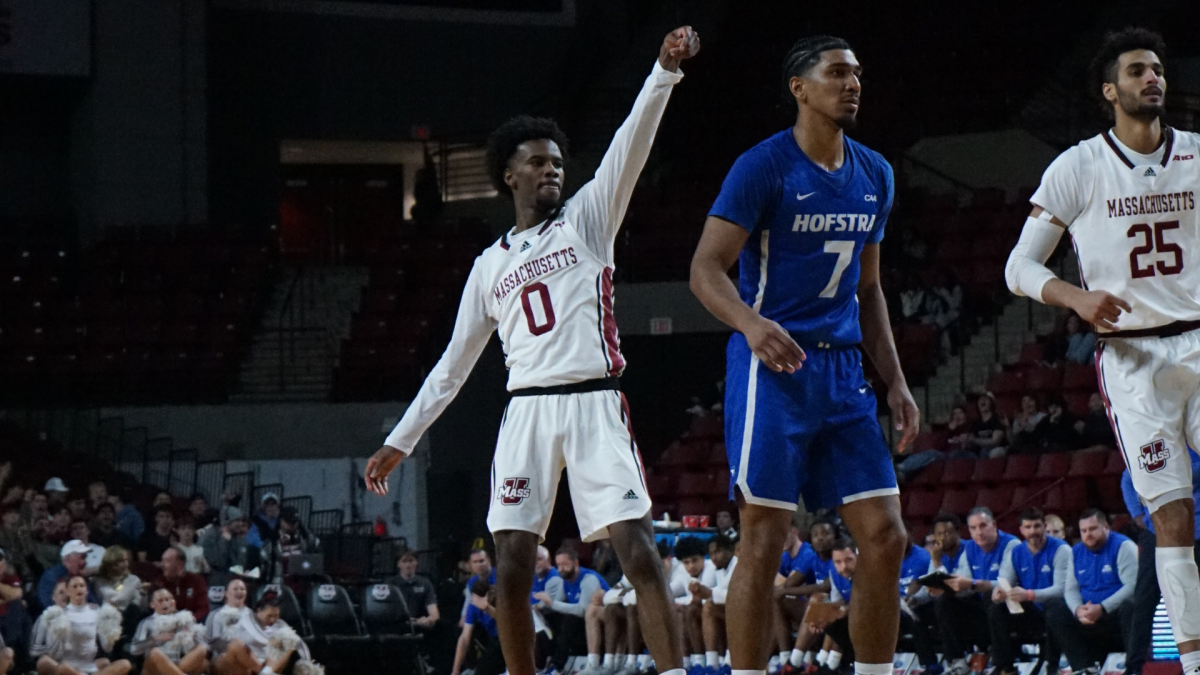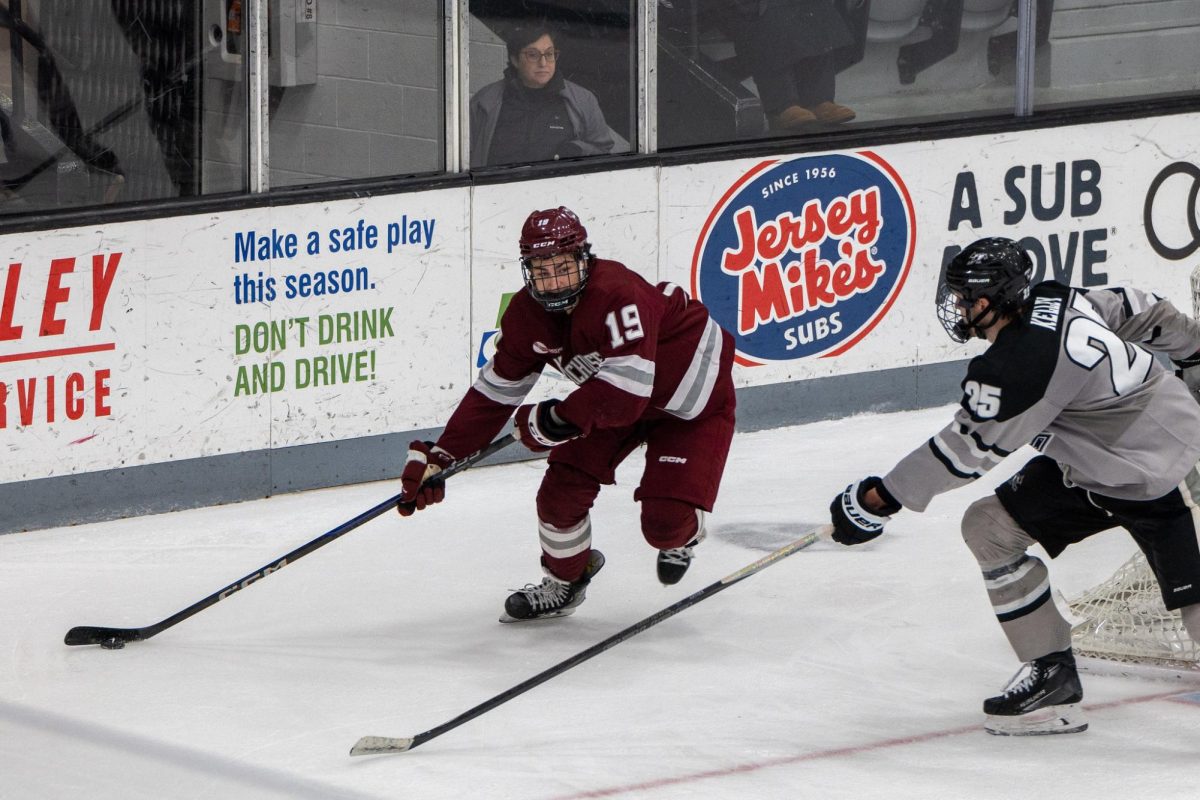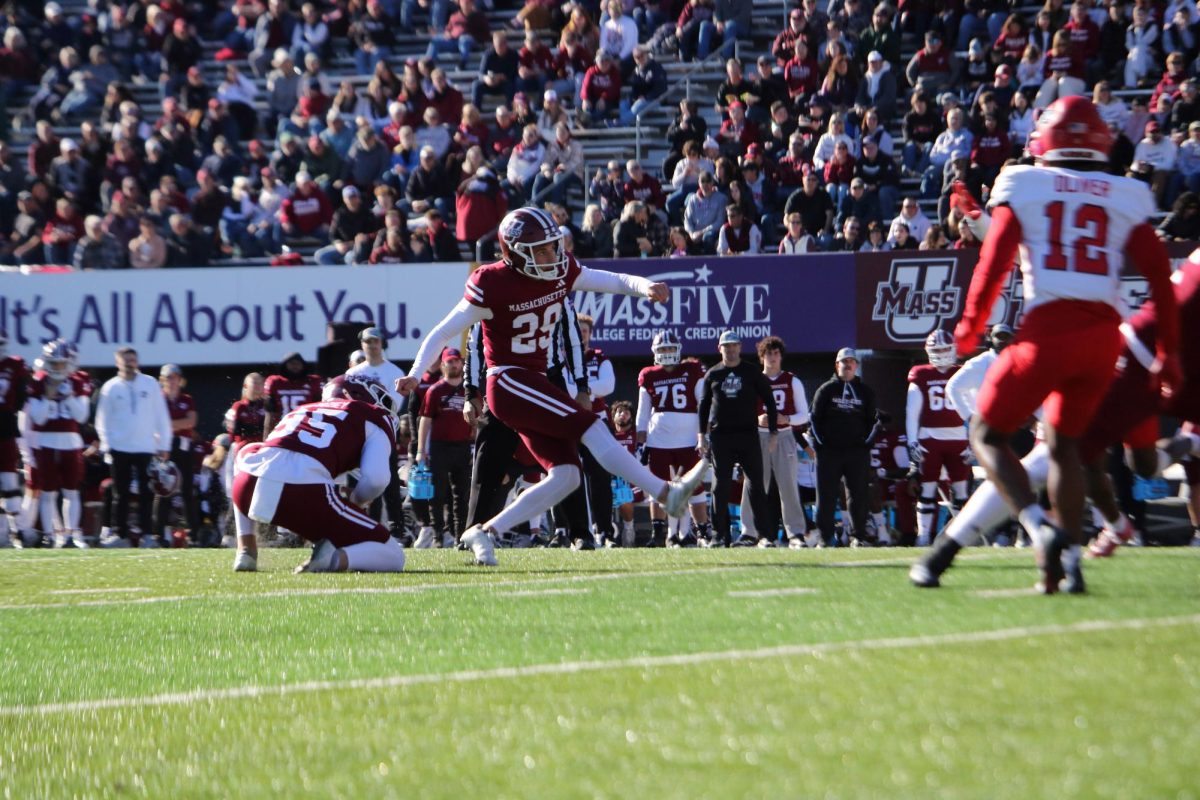
Congressman Joseph Kennedy III spoke on Oct. 28 at Amherst College as part of a larger event celebrating President John F. Kennedy’s 1963 visit to Amherst College and the 100th anniversary of his birth.
Structured as a forum, the event, titled “Poetry and Politics: A Celebration of the Life and Legacy of President John F. Kennedy” was co-hosted by Amherst College and the John F. Kennedy Library Foundation. Steven Rothstein, executive director of the John F. Kennedy Library Foundation, stated that although other institutions are celebrating the centennial of JFK’s birth, “Amherst College is unique because JFK visited here.”
President Kennedy visited Amherst College 54 years ago to give a speech at the grand opening of the Robert Frost Library. The event consisted of a screening of a film-recording of this speech, student and faculty panels, Rep. Kennedy’s speech and a reception.
Held at Converse Hall, the faculty panel consisted of three Amherst College professors: Andrew Poe, assistant professor of political science, Rhonda Cobham-Sander, Emily C. Jordan Folger professor of black studies and English as well as the chair of the black studies department, and Geoffrey Sanborn, Henry S. Poler ‘59 Presidential Teaching professor of English. Catherine Epstein, dean of the faculty and Winkley professor of history, moderated. Each presented an interpretation and dissection of JFK’s relationship with poetry through his speech at Amherst College.
Through a line from Shakespeare’s “Measure for Measure” (“To have a giant’s strength; but it is tyrannous/To use it like a giant.”), Poe exposed a more vulnerable side of Kennedy.
“We see some of Kennedy’s views on power, and also some of his anxieties,” Poe said, going on to theorize that Kennedy’s intent was to be “one who escapes power of force for a power of poetry.”
One particular statement from Kennedy’s speech stood out to Sanborn, in which the former president said, “I look forward to an America which will not be afraid of grace and beauty.” Sanborn then explored the relevance of the terms in relation to current events, ranging from universal healthcare to police brutality against people of color.
“Politics without an orientation towards grace and beauty is one without strength,” Sanborn said.
Cobham-Sander discussed JFK’s use of the term “diversity” within the speech in relation to her experience as an Afro-Caribbean woman.
She presented the three ways in which the term “diversity” was used: one, in relation to diversity of freedom, two, diversity in poetry and three, diversity as the “lynchpin of the two great American ideals, democracy and idealism.”
After the panel, the event moved outside to the steps of Frost Library, where Rep. Kennedy spoke to the crowd. Biddy Martin, president of Amherst College, introduced Rep. Kennedy as a man known for being outspoken on immigration reform, transgender rights, affordable healthcare and education. Members from Amherst College, Five College and greater Amherst community attended, listening to Martin and Kennedy speak.
Kennedy spoke on the relationship between JFK and Robert Frost, saying, “[Frost and JFK were] both longtime students of hardworking men.” He then made use of a quotation from his grand-uncle’s speech.
“When power leads man toward arrogance, poetry reminds him of his limitations,” Kennedy quoted. “When power corrupts, poetry cleanses.”
Kennedy went on to cite a liberal arts education as “critical” for the current political climate, “[just] as when President Kennedy stood in this spot.”
“We depend on [the liberal arts] to remind us of our individual frailties, that they are not unique, that rather, build upon and fortify common cause,” he said, further relating this point back to his view of “an American truth: we are a work in progress.”
“We give, we hope, we heal, we help,” Kennedy stated. “This is the touchstone of our judgement.”
Nick Floyd, an Amherst College alumnus, felt the event to be a moving experience, as he was able to first handedly witness a speech from “both Kennedy generations.”
Rothstein also approved of the event.
“I think the president [of Amherst College, Biddy Martin], the students, the faculty, all had a thoughtful perspective,” Rothstein said. “And obviously, Congressman Kennedy is outstanding as he always is.”
Melina Dominguez, a senior political science major at Amherst College, found Rep. Kennedy’s speech to be “sensible,” adding, “I like it when people who were born with privilege and opportunity are aware of that.”
Melissa Laboriel, a senior sociology major at Amherst College, felt similarly.
“I have hope for the future of politics,” Laboriel said.
Rebecca Duke Wiesenberg can be reached at [email protected].



















